- Home
- H A CULLEY
The Strategos Page 8
The Strategos Read online
Page 8
Parmenion’s dislike for Pharnabazos was reciprocated. The old man with the thinning hair and arthritic joints regarded the handsome, tall, black haired young epihipparchos with more than envy; it was closer to hatred. At twenty two Parmenion was a confident, ambitious soldier with a whole lifetime ahead of him. Pharnabazos was acutely aware that his glory days were well behind him. He hadn’t wanted this command but the Persian king had insisted, believing that the satrap was still an able commander. Moreover, as they were related through marriage, the king felt that he could trust him, and he didn’t trust many of his satraps. Pharnabazos would have much rather remained at home with his boy attendants and spent his remaining days in a life of sybaritic pleasure.
Instead he was jolted around in a litter all day eating sand and plagued by flies. Iphicrates’ obvious enjoyment of life on the road consequently irritated him and he found himself disagreeing with his Greek second-in-command just to annoy him almost every time they met. The inevitable result was that Iphicrates started to avoid him and the two commanders soon ceased to communicate. That didn’t bode well for the success of the campaign.
Early the following year, they finally arrived at Acre. As Parmenion had forecast, the Persians had lost almost a tenth of their men on the long march. The Greek situation was much better. There had been very few casualties and those cavalrymen he had lost had been replaced by ephebes coming of age. A more serious worry was the death of quite a few horses. Some had died naturally but most of the losses had been due to disease or broken legs, when the horse had to be killed. Parmenion had brought replacement mounts, but not enough and some of his men were now riding the smaller local horses, who had difficulty in keeping up with the Greek horses with an armoured rider on their backs.
It was at Acre that Parmenion saw his first camel. His immediate thought was that it would be difficult to strike at the rider, who rode so much higher than a horseman did. He therefore started to investigate how easy it would be to kill the camel and came to the conclusion that it would be more difficult than a horse. In a sprint horses could outrun a camel but the camel’s stamina was far greater than that of a horse. He began to wish he still had his Scythian horse archers. Then the idea of equipping his Thracian cavalry with javelins occurred to him and he began to train them using a few stuffed camel skins he had bought as targets. At first the Thracians threw wildly but, after a month, their aim began to improve and two months later he was satisfied with their ability.
Levies from the rest of Persia began to arrive whilst they waited at Acre until by the autumn there were over forty thousand Persians in addition to the five thousand Greeks. It was getting a little cooler, so Iphicrates urged Pharnabazos to set out on the last four hundred miles of their march to the Nile Delta. As they were travelling along the coast road, they could be resupplied by sea and the Greek Strategos could see no further reason for delay. However, when he demanded that the Persian satrap give the order, Pharnabazos said he wasn’t well and they would have to wait until he was feeling better.
‘We can make use of this time to explore the ground between here and Sebennytos and to probe the Egyptian defences,’ Parmenion suggested.
‘That’s what the Persian light horsemen should be doing, not the heavy cavalry, but that fat, lazy bastard won’t allow them to leave Acre,’ Iphicrates replied, grinding his teeth together and looking furious.
‘Meanwhile more and more of the Persian levies are slipping away to return to their homes,’ Orestes added.
‘Even my men are getting restless. They are getting paid, but they came here to fight and accumulate plunder, not sit on their arses.’ Parmenion looked thoughtful for a while, then he had an idea.
‘What is to stop my epihipparchia from going out into the desert to train and then exploring the road to the south? We could be there and back in three weeks or so and I can’t see Pharnabazos moving before then, so he need never know.’
‘Unless he calls a meeting of all senior commanders,’ Iphicrates pointed out.
‘It’s better than sitting here doing nothing.’
‘Very well, but be back within the three weeks, you hear?’
-o0o-
Parmenion and Orestes sat on horseback surveying sight in front of him. They had taken three local guides with them who knew where the oases and the wells were for water and they bought goats and cereal crops as they went. However, when they reached the Sinai Desert, they began to starve as they found little game to hunt and even fewer people to buy food from. What the scattered population had, they needed themselves to survive and Parmenion refused to kill them and take what they had. The horses suffered most once the oats and wheat ran out. However, only a few had died of starvation by the time that they reached the cultivated strip along the first of the Nile tributaries, which the locals told them ran from the sea to join with several other rivers from the delta at Heliopolis.
Parmenion allowed his men and horses to rest for three days and then he sent patrols along the river to see if they could find a crossing point. There were no bridges and the river looked too wide and fast flowing to risk swimming the horses across. On the next day they found a ferry which was busy conveying a merchant’s caravan across to the west bank. As Parmenion and his friend watched the other side of the river began to fill with armed men, both on horseback and on foot. They were dressed differently to the Persians but they were similarly armed. He didn’t see any sign of either hoplites or armoured cavalry and, from the way that they jumped up and down and ran here and there, brandishing their weapons, he didn’t think they were very well disciplined.
Nearly two weeks had passed since they had left Acre so Parmenion came to the reluctant conclusion that it was time that he started the return journey. However, he wasn’t about to cross the Sinai again without adequate provisions and feed for the horses. Orestes and one of their guides rode down to speak to the ferrymen as they were loading another batch of reluctant camels onto their ferry. From him he learned that there was a busy port at the mouth of the river with a market where they could buy all that they needed.
Orestes was about to turn back to tell Parmenion when he saw the other ferry boat approaching the near bank. It was crammed with about a hundred armed Egyptians. He couldn’t believe that they could be so stupid as to think that a hundred poorly armed infantrymen could take on a thousand Greek cavalrymen. He was about to ride back to Parmenion when he saw his friend ride down to join him with the two ilia of Thracians.
‘More target practice, I think,’ the latter remarked cheerfully.
The Thracians rode forward in ranks of ten and each cast their javelins at the approaching ferry. The four men manning it had the sense to jump into the water and cling to the sides of the raft as the first lethal volley landed amongst the tightly packed soldiers. Ten more volleys followed before Parmenion gave the order to cease. Some of the Egyptians had ended up in the water when the javelins struck them, but the surface of the raft was full of the dead and wounded. No-one was left unharmed.
When the ferry operators were certain that the hail of death had ceased, they climbed back on board and continued to haul on the ropes to bring the ferry with its grisly cargo into the eastern bank. By that time Parmenion and his men had left and were headed north to find the port, which they learned was called Pelusium.
On the west bank Pelusium was defended by a high wall and several towers. Once again two ferries were used to convey caravans and farmers with their produce from one side of the river to the other. There were also small trading boats with large triangular sails arriving and leaving all the time. Most of these came and went from the sea but a few sailed further up the river. The Greeks’ arrival caused a great deal of excitement amongst the Egyptian soldiers manning the walls of Pelusium but this time they had more sense than to try and cross. There was a small undefended settlement on the east bank but the Greeks soon learned that most of what they needed was only available in the main town on the other bank.
Pa
rmenion quickly came to the conclusion that the only solution to his problem was to capture the place. Cavalry were almost useless when it came to attacking a fortified town so he would have to devise a plan whereby he could infiltrate his men inside the walls covertly. It was Orestes who reminded him about the capture of Troy. The Greeks had staged a feigned withdrawal, leaving behind a large wooden horse which they had built as a mascot. When the triumphant Trojans had hauled it back into their city and left it in the agora overnight, the handful of Greeks hidden inside it had dropped out of the horse’s body, captured the main gate and opened it to admit the Greek army, who had returned under the cover of darkness. Parmenion decided to try something similar, but using a caravan to get into the city.
Camels weren’t allowed inside the walls because of their smell and anti-social habits, so goods were hauled by cart from the campsites outside the town to the agora, where the merchants hired stalls to sell their wares. Some carts also trundled down to the quayside where their cargo was loaded onto ships for export. Parmenion sent his three native guides to hire two of these carts from their owners. They were reluctant to part with them, even for a day or two, but quickly changed their mind when they were offered well over what they would otherwise have earned. The next day the carts plied to and fro between the campsite and the agora led by two of the guides whilst the third arranged to hire a vacant shop in the colonnade along one side of the agora.
The next morning Parmenion and an ilia of light cavalry lay in wait on the hillsides above the coastal road where it passed through a narrow defile before emerging onto the flat plain of the Nile Delta. They allowed two large caravans to pass unmolested and then, just as Parmenion was losing hope, a small caravan consisting of ten camels appeared. It appeared to have a dozen guards, all on foot, in addition to what he assumed was two merchants and a few slaves. Orestes rode down with thirty men and one of the guides to halt the caravan. Another thirty cavalrymen appeared in the defile behind them.
One of the guides translated what Orestes said.
‘We mean you no harm, we merely want to borrow your caravan for a few days. You will stay in a side valley back there as out guests until we have finished with your caravan, then you may proceed in peace. Alternatively, you can resist us and you will all die. The choice is yours.’
The guide hadn’t quite finished translating when the hired guards all threw down their weapons. It seemed that the merchants’ decision had been made for them.
Late that afternoon the caravan arrived outside Pelusium and was ferried over the river. The two carts then transported the first of the goods to be sold into the agora and unloaded them into the hired shop. After three such trips, the sentries on the gates got bored with checking the carts each time they went into the city and so the next, and last time, that they did the trip they were waved through. Had they been checked, Parmenion’s plan would have failed.
The twenty Amphipolitans concealed in the carts cautiously got out at one o’clock in the morning when all was quiet. Led by Orestes, they made their way through the narrow streets to the main gate. Orestes knew from the guides with the carts that thirty men guarded the gate at night, with ten men on watch at a time. Those off watch slept in a smallish room adjoining the gates. He had decided to deal with the sleeping soldiers first but, when he entered the room he saw that it was practically empty. He and a few of his men quietly killed four of them and woke the last, the youngest, to ask about the others at knife point.
The terrified youth told the interpreter that the rest were asleep on the flat roof above because it was hot inside the room. Orestes thanked him and then one of his men slit the young man’s throat. Orestes led half his men up the outside stairs to the flat roof. The other ten stayed below on guard. It was only then that he realised that he had another problem. Whereas the entrance to the room below was hidden from the two sentries on top of the wall by the gate, the roof was in full view from the parapet and, moreover, was illuminated by the moon.
He and his men retraced their steps and he held a whispered briefing in the room where the five dead sentries lay. Leaving five to watch the steps, the other fifteen crept along the wall of the house to where they could hear murmuring voices. Four of the sentries were playing a gambling game using small bones in the space behind the closed gates whilst the other four watched. Between the guard house and the gates there was a set of steps leading up to the parapet along the top of the wall. He sent three men up them to deal with the sentries at the top whilst he and the remainder prepared to deal with the gamblers and the onlookers. As soon as he heard a muffled sound from above, he led his men in a charge towards the other eight. It was over in less than a minute but the sound had awoken the off-duty men on the roof of the guard house.
Orestes’ five men rushed up the stairs and held the top whilst the others ran up the steps onto the parapet. Once they had killed the sentries there, they started to hurl their spears down at the Egyptians on the roof below whilst Orestes grabbed a torch from a nearby sconce and started to wave it energetically to and fro. His men soon ran out of spears but the guide appeared, puffing and panting with effort, carrying a bundle of javelins he had found in the guard house. Orestes nodded his thanks and they started to hurl these at the remaining sentries trapped on the roof.
The noise had awoken those sleeping in houses near the gate and men, women and even children started to come out to see what was going on. A few ran off, presumably to alert the garrison, and Orestes realised that he had little time left before his small force would be overwhelmed. He glanced over the wall and was relieved to see Parmenion and the remainder of the epihipparchia cantering towards the gate. As soon as night had fallen Parmenion had captured the two ferries and slowly transported everyone over to the west bank. They had then waited for the signal. Parmenion had just started to worry that things had gone wrong and was thinking of returning to the east side of the river before dawn found him trapped on the Egyptian side when he saw the waving torch.
The gates remained firmly shut as he neared them, then they slowly swung open and he and his men rode into Pelusium. They encountered the garrison in the agora as the latter ran in a disorganized mass towards the main gates. Heavily outnumbered and on foot, the Egyptians didn’t put up much of a fight. Parmenion ran his spear into one man and brought his sword down on the head of another; then it was all over.
By dawn his men had looted and sacked the town. Dead civilians lay everywhere, the women and even some of the children had been raped before they were killed and houses had been ransacked for cash, valuables and wine. Many of his men were drunk and Parmenion was sickened by what he saw. He and his officers found three Thracians raping a young girl and he had them hanged on the spot. He had to hang five more of his men, one of them a fifteen year old ephebe, before order was restored. He mustered his epihipparchia in the agora and rode amongst them, telling them exactly what he thought of them. The men looked sullen and rebellious but they listened to what he had to say.
When he ordered them to give up what they had looted so that it could divided equally amongst the epihipparchia later a few started yelling defiance. One in particular, a giant of an Athenian called Barates, rode his horse forward and started to yell in Parmenion’s face. The chiliarch sat there and waited until Barates paused to draw breath, then he calmly drew his sword and slashed it across Barates’ throat. The giant toppled off his horse and lay in the dirt of the agora, his blood staining the ground a dark red.
‘You are warriors of Greece,’ Parmenion roared, ‘not ill-disciplined barbarians. You will behave like soldiers or you will die like this mutinous dog. Now go and sober up and parade here under your commanders in one hour’s time. We can expect the Egyptians to send an army against us as soon as they hear what has happened, so we have little time to gather what we need to survive the crossing of the Sinai Desert. Now, get out of my sight and get yourself cleaned up.’
However, by the time that they formed up again, the situati
on had changed. A messenger from Iphicrates had found them, after days of searching for them along the coast in a trireme, and he carried new orders. It seemed that Pharnabazos was on the move at long last and was advancing from Acre towards him. He was to stay where he was until the Persian army arrived. Parmenion sent back a reply saying that he had taken the port of Pelusium and suggesting that the Persian fleet could use it as their base. He had no idea how long it would be before Pharnabazos and Iphicrates arrived but he would try and hold onto the port until they did.
-o0o-
Parmenion looked out over the Egyptian army encamped around Pelusium. It had been two months now and the stalemate persisted. Ships from the Persian fleet had arrived with reinforcements and now the town was commanded by a Persian with three thousand infantry and a thousand peltasts to supplement Parmenion’s men. Pharaoh’s fleet had tried to blockade the port but the Persians had driven it off with significant losses on both sides. Fortunately the Egyptians had little skill at siege warfare and seemed content to sit and besiege the town. As the Greeks and Persians were resupplied by sea, this was unlikely to achieve very much.
Suddenly he spotted a dust cloud to the north and two hours later the vanguard of Pharnabazos’ army arrived on the east bank of the river. Parmenion had moved the two ferries nearer to the town, away from the area controlled by the Egyptians, so now he sent them across and they conveyed the portly form of Pharnabazos, Iphicrates and several Persian commanders over to the town.
Seeing this the Egyptian commander evidently took fright and by the end of the day all that remained of their army was the usual detritus showing where the camp had once been. As night fell the rapidly retreating dust cloud in the west disappeared and Pharnabazos was left in possession of the first of the seven river estuaries that made up the Nile Delta.

 The Wolf and the Raven
The Wolf and the Raven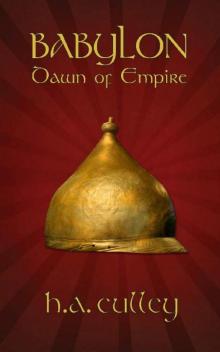 Dawn of Empire
Dawn of Empire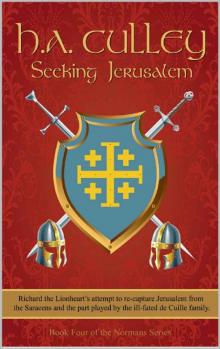 Seeking Jerusalem
Seeking Jerusalem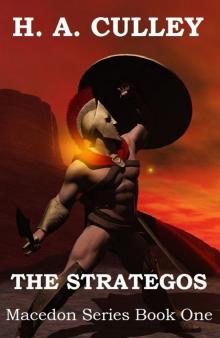 The Strategos
The Strategos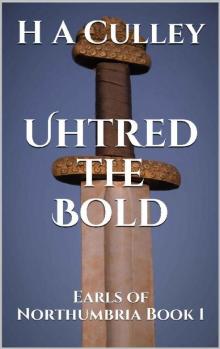 Uhtred the Bold
Uhtred the Bold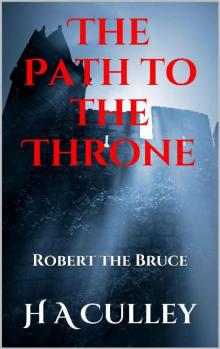 The Path to the Throne
The Path to the Throne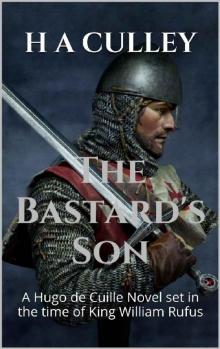 The Bastard's Son
The Bastard's Son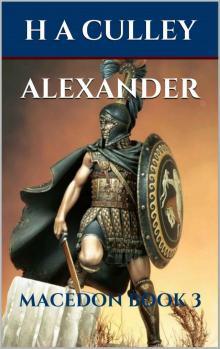 Alexander
Alexander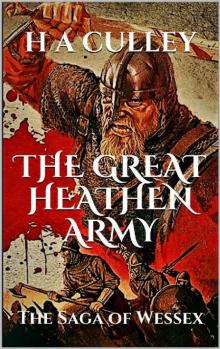 The Great Heathen Army
The Great Heathen Army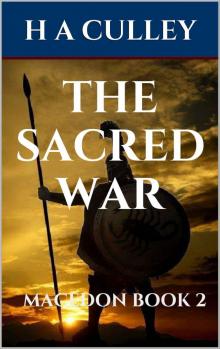 The Sacred War
The Sacred War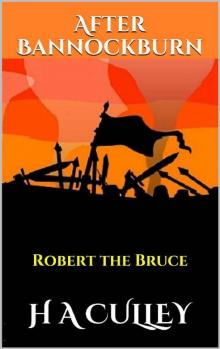 After Bannockburn
After Bannockburn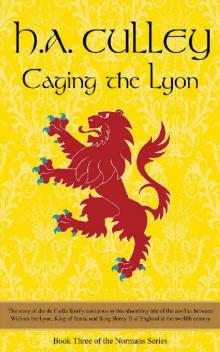 Caging the Lyon
Caging the Lyon The Bastard's Crown
The Bastard's Crown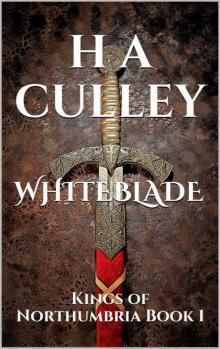 WHITEBLADE
WHITEBLADE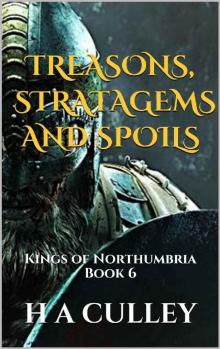 TREASONS, STRATAGEMS AND SPOILS: Kings of Northumbria Book 6
TREASONS, STRATAGEMS AND SPOILS: Kings of Northumbria Book 6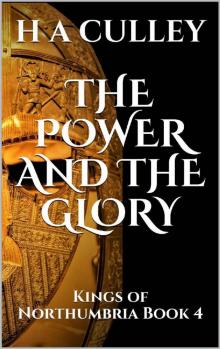 THE POWER AND THE GLORY: Kings of Northumbria Book 4
THE POWER AND THE GLORY: Kings of Northumbria Book 4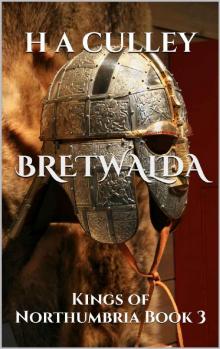 BRETWALDA: Kings of Northumbria Book 3
BRETWALDA: Kings of Northumbria Book 3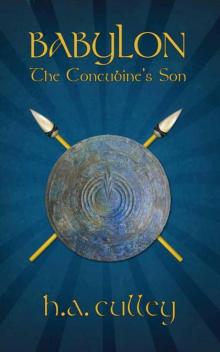 The Concubine's Son
The Concubine's Son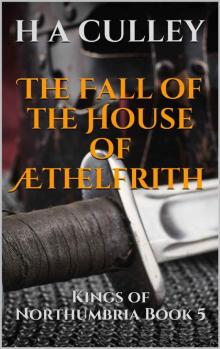 The Fall of the House of Æthelfrith: Kings of Northumbria Book 5
The Fall of the House of Æthelfrith: Kings of Northumbria Book 5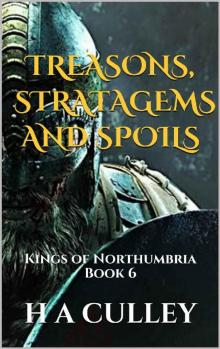 TREASONS, STRATAGEMS AND SPOILS
TREASONS, STRATAGEMS AND SPOILS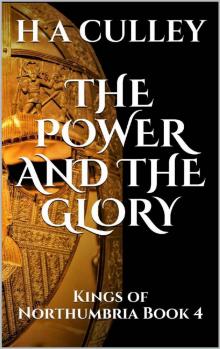 THE POWER AND THE GLORY
THE POWER AND THE GLORY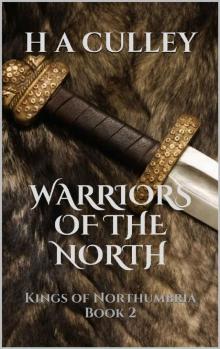 WARRIORS OF THE NORTH
WARRIORS OF THE NORTH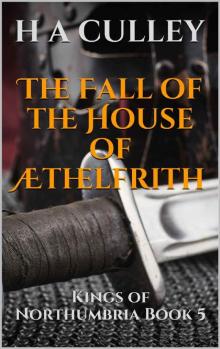 The Fall of the House of Æthelfrith
The Fall of the House of Æthelfrith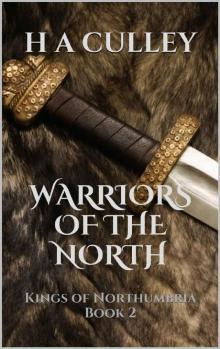 WARRIORS OF THE NORTH: Kings of Northumbria Book 2
WARRIORS OF THE NORTH: Kings of Northumbria Book 2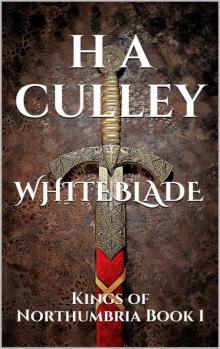 WHITEBLADE: Kings of Northumbria Book 1
WHITEBLADE: Kings of Northumbria Book 1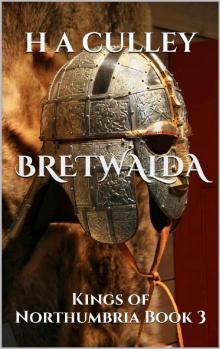 BRETWALDA
BRETWALDA